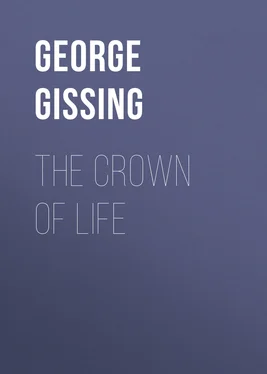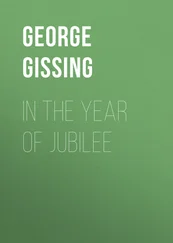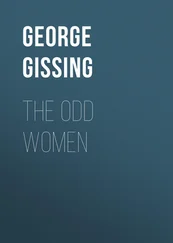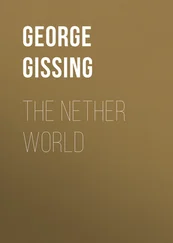George Gissing - The Crown of Life
Здесь есть возможность читать онлайн «George Gissing - The Crown of Life» — ознакомительный отрывок электронной книги совершенно бесплатно, а после прочтения отрывка купить полную версию. В некоторых случаях можно слушать аудио, скачать через торрент в формате fb2 и присутствует краткое содержание. Жанр: foreign_prose, literature_19, foreign_antique, на английском языке. Описание произведения, (предисловие) а так же отзывы посетителей доступны на портале библиотеки ЛибКат.
- Название:The Crown of Life
- Автор:
- Жанр:
- Год:неизвестен
- ISBN:нет данных
- Рейтинг книги:3 / 5. Голосов: 1
-
Избранное:Добавить в избранное
- Отзывы:
-
Ваша оценка:
- 60
- 1
- 2
- 3
- 4
- 5
The Crown of Life: краткое содержание, описание и аннотация
Предлагаем к чтению аннотацию, описание, краткое содержание или предисловие (зависит от того, что написал сам автор книги «The Crown of Life»). Если вы не нашли необходимую информацию о книге — напишите в комментариях, мы постараемся отыскать её.
The Crown of Life — читать онлайн ознакомительный отрывок
Ниже представлен текст книги, разбитый по страницам. Система сохранения места последней прочитанной страницы, позволяет с удобством читать онлайн бесплатно книгу «The Crown of Life», без необходимости каждый раз заново искать на чём Вы остановились. Поставьте закладку, и сможете в любой момент перейти на страницу, на которой закончили чтение.
Интервал:
Закладка:
"Mr. Otway is occupied with serious thoughts," was her good-humoured remark.
"I should much like to hear the story of Thibaut," said Piers, bending forward a little.
"Would you? You shall—Thibaut Rossignol; delightful name, isn't it? And one of the most delightful of men, though only a servant, and the son of a village shopkeeper. It begins fifteen years ago, just after the Franco-Prussian War. My father was taking a holiday in eastern France, and he came one day to a village where an epidemic of typhoid was raging. Tant mieux ! Something to do; some help to be given. If you knew my father—but you will understand. He offered his services to the overworked couple of doctors and was welcomed. He fought the typhoid day and night—if you knew my father! Well, there was a bad case in a family named Rossignol: a boy of twelve. What made it worse was that two elder brothers had been killed in the war, and the parents sat in despair by the bedside of their only remaining child. The father was old and very shaky; the mother much younger, but she had suffered dreadfully from the death of her two boys—you should hear my father tell it! I make a hash of it; when he tells it people cry. Madame Rossignol was the sweetest little woman—you know that kind of Frenchwoman, don't you? Soft-voiced, tender, intelligent, using the most delightful phrases; a jewel of a woman. My father settled himself by the bedside and fought; Madame Rossignol watching him with eyes he did not dare to meet—until a certain moment. Then— then the soft voice for once was loud. ' Ii est sauve !' My father shed tears; everybody shed tears—except Thibaut himself."
Piers hung on the speaker's lips. No music had ever held him so rapt. When she ceased he gazed at her.
"No, of course, that's not all," Irene proceeded, with the mischievous smile again; and she spoke much as she might have done to an eagerly listening child. "Six years pass by. My father is again in the east of France, and he goes to the old village. He is received with enthusiasm; his name has become a proverb. Rossignol pere , alas, is dead, long since. Dear Madame Rossignol lives, but my father sees at a glance that she will not live long. The excitement of meeting him was almost too much for her—pale, sweet little woman. Thibaut was keeping shop with her, but he seemed out of place there; a fine lad of eighteen; very intelligent, wonderfully good-humoured, and his poor mother had no peace, night or day, for the thought of what would become of him after her death; he had no male kinsfolk, and certainly would not stick to a dull little trade. My father thought, and after thinking, spoke. 'Madame, will you let me take your son to England, and find something for him to do?' She screamed with delight. 'But will Thibaut consent?' Thibaut had his patriotic scruples; but when he saw and heard his poor mother, he consented. Madame Rossignol had a sister near by, with whom she could live. And so on the spot it was settled."
Piers hung on the speaker's lips; no tale had ever so engrossed him. Indeed, it was charmingly told; with so much girlish sincerity, so much womanly feeling.
"No, that's not all. My father went to his inn for the night. Early in the morning he was hastily summoned; he must come at once to the house of the Rossignols; something was wrong. He went, and there, in her bed, lay the little woman, just as if asleep, and a smile on her face—but she was dead."
Piers had a lump in his throat; he straightened himself, and tried to command his features. Irene, smiling, looked steadily at him.
"From that day," she added, "Thibaut has been my father's servant. He wouldn't be anything else. This, he always says, would best have pleased his mother. He will never leave Dr. Derwent. The good Thibaut!"
All were silent for a minute; then Piers pushed back his chair.
"Work?" said Mrs. Hannaford, with a little note of allusion to last evening.
"Work!" Piers replied grimly, his eyes down.
"Well, now," exclaimed Irene, turning to her cousin, "what shall we do this splendid morning? Where can we go?"
Piers left the room as the words were spoken. He went upstairs with slower step than usual, head bent. On entering his room (it was always made ready for him while he was at breakfast), he walked to the window, and stared out at the fleecy clouds in the summer blue, at the trees and the lawn. He was thinking of the story of Thibaut. What a fine fellow Dr. Derwent must be! He would like to know him.
To work! He meant to give an hour or two to his Russian, with which he had already made fair progress. By the bye, he must tell his father that; the old man would be pleased.
An hour later, he again stood at his window, staring at the clouds and the blue. Russian was against the grain, somehow, this morning. He wondered whether Miss Derwent had learnt any during her winter at Helsingfors.
What a long day was before him! He kept looking at his watch. And, instead of getting on with his work, he thought and thought again of the story of Thibaut.
CHAPTER V
At lunch Piers was as silent as at breakfast; he hardly spoke, save in answer to a chance question from Mrs. Hannaford. His face had an unwonted expression, a shade of sullenness, a mood rarely seen in him. Miss Derwent, whose animation more than made up for this muteness in one of the company, glanced occasionally at Otway, but did not address him.
As his habit was, he went out for an afternoon walk, and returned with no brighter countenance. On the first landing of the staircase, as he stole softly to his room, he came face to face with Miss Derwent, descending.
"We are going to have tea in the garden," she exclaimed, with the friendliest look and tone.
"Are you? It will be enjoyable—it's so warm and sunny."
"You will come, of course?"
"I'm sorry—I have too much to do."
He blundered out the words with hot embarrassment, and would have passed on. Irene did not permit it.
"But you have been working all the morning?"
"Oh, yes–"
"Since when?"
"Since about—oh, five o'clock–"
"Then you have already worked something like eight hours, Mr. Otway. How many more do you think of working?"
"Five or six, I hope," Piers answered, finding courage to look into her face, and trying to smile.
"Mr. Otway," she rejoined, with an air of self-possession which made him feel like a rebuked schoolboy, "I prophesy that you will come to grief over your examination."
"I don't think so, Miss Derwent," he said, with the firmness of desperation, as he felt his face grow red under her gaze.
"I am the daughter of a medical man. Prescriptions are in my blood. Allow me to tell you that you have worked enough for one day, and that it is your plain duty to come and have tea in the garden."
So serious was the note of interest which blended with her natural gaiety as she spoke these words that Piers felt his nerves thrill with delight. He was able to meet her eyes, and to respond in becoming terms.
"You are right. Certainly I will come, and gladly."
Irene nodded, smiled approval, and moved past him.
In his room he walked hither and thither aimlessly, still holding his hat and stick. A throbbing of the heart, a quickening of the senses, seemed to give him a new consciousness of life. His mood of five minutes ago had completely vanished. He remembered his dreary ramble about the lanes as if it had taken place last week. Miss Derwent was still speaking to him; his mind echoed again and again every word she had said, perfectly reproducing her voice, her intonation; he saw her bright, beautiful face, its changing lights, its infinite subtleties of expression. The arch of her eyebrows and the lovely hazel eyes beneath; the small and exquisitely shaped mouth; the little chin, so delicately round and firm; all were engraved on his memory, once and for ever.
Читать дальшеИнтервал:
Закладка:
Похожие книги на «The Crown of Life»
Представляем Вашему вниманию похожие книги на «The Crown of Life» списком для выбора. Мы отобрали схожую по названию и смыслу литературу в надежде предоставить читателям больше вариантов отыскать новые, интересные, ещё непрочитанные произведения.
Обсуждение, отзывы о книге «The Crown of Life» и просто собственные мнения читателей. Оставьте ваши комментарии, напишите, что Вы думаете о произведении, его смысле или главных героях. Укажите что конкретно понравилось, а что нет, и почему Вы так считаете.












